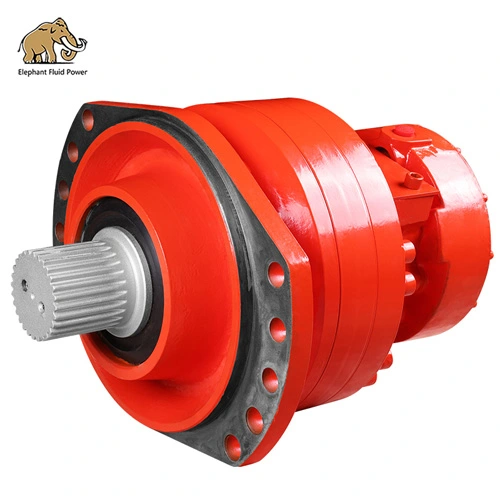Excavator Main Pump: A Detailed Guide
Excavator Main Pump: A Detailed Guide
Blog Article
The main pump is a critical part of an excavator's hydraulic system, providing the power needed to perform essential functions like digging, lifting, and rotating. In this article, we'll discuss what the excavator main pump is, how it works, the different types available, and tips on maintenance to keep it running efficiently.
What is an Excavator Main Pump?
The excavator main pump is the primary hydraulic pump that drives the entire hydraulic system of the machine. It converts mechanical energy from the engine into hydraulic energy, supplying the pressure and flow needed to power the excavator's boom, arm, bucket, and other attachments. The main pump is a vital component, as it determines the machine's performance, speed, and precision during operations.
How Does the Excavator Main Pump Work?
The main pump operates by generating hydraulic pressure through the movement of hydraulic fluid. Here's a simple breakdown of how it works:
Mechanical Energy Conversion: The excavator’s engine generates mechanical energy, which powers the main pump.
Hydraulic Fluid Movement: The main pump pushes hydraulic fluid through the system at high pressure.
Powering the Functions: This pressurized fluid travels through hydraulic lines to various components of the excavator, like the boom, arm, and bucket, enabling them to move and perform tasks.
The efficiency and speed of an excavator largely depend on the performance of its main pump, making it a crucial part of the hydraulic system.
Types of Excavator Main Pumps
There are several types of main pumps used in excavators, each designed to handle different pressures and applications:
1. Axial Piston Pumps
Axial piston pumps are the most commonly used main pumps in modern excavators. They offer high efficiency, reliability, and the ability to handle high-pressure demands. These pumps can deliver a precise flow of hydraulic fluid, making them ideal for heavy-duty operations.
2. Radial Piston Pumps
Radial piston pumps are less common but are used in applications that require extremely high pressures. They have a unique design with pistons arranged radially around the pump, providing powerful hydraulic output suitable for specific tasks.
3. Variable Displacement Pumps
Variable displacement pumps can adjust the amount of hydraulic fluid they deliver based on the excavator's needs. This flexibility makes them energy-efficient, as they only use the power required for each operation. These pumps are widely used in modern excavators to optimize performance and fuel consumption.
Signs of a Failing Excavator Main Pump
Recognizing the early signs of a failing main pump can help prevent costly repairs and downtime. Here are some symptoms to watch for:
Decreased Power: If your excavator loses power or has trouble lifting heavy loads, the main pump might be the issue.
Unusual Noises: Loud whining, grinding, or knocking sounds coming from the pump area could indicate internal damage.
Slow Movements: A slow response from the excavator’s boom, arm, or bucket usually means the main pump isn't delivering enough hydraulic pressure.
Fluid Leaks: Any visible leaks around the pump or hydraulic system should be addressed immediately, as they can lead to significant damage if not repaired.
Maintenance Tips for Excavator Main Pumps
Regular maintenance is essential to keep your excavator’s main pump in top condition. Here are some practical tips:
1. Regular Fluid Checks
Always check the hydraulic fluid levels and top up as needed. Using clean, high-quality hydraulic fluid prevents internal damage and ensures the pump runs smoothly.
2. Inspect for Leaks and Damage
Routinely inspect the main pump for leaks or signs of wear. Early detection of leaks can prevent more severe issues and extend the pump's lifespan.
3. Replace Filters Regularly
Dirty or clogged filters can reduce the efficiency of the hydraulic system and lead to pump failure. Make sure to replace the filters as recommended by the manufacturer.
4. Monitor Operating Temperatures
Keep an eye on the hydraulic system's temperature. Overheating can damage the main pump and other components, so address any cooling issues immediately.
How to Choose the Right Main Pump for Your Excavator
Selecting the right main pump is crucial for your excavator's performance and efficiency. Here’s what to consider:
Machine Size: Larger excavators require more powerful main pumps to handle heavy-duty operations.
Application: Consider the type of work your excavator will be doing. If it’s for digging or lifting heavy loads, a high-pressure pump like an axial piston pump is ideal.
Compatibility: Always ensure that the pump you choose is compatible with your excavator model and meets the manufacturer’s specifications.
Quality: Invest in a high-quality pump from a reputable brand to ensure durability and performance over time.
Where to Buy Excavator Main Pumps
You can purchase excavator main pumps from authorized dealers, specialized hydraulic equipment suppliers, or online marketplaces. Always buy from a trusted source to ensure that you get a genuine product designed to meet your machine's specifications.
Conclusion
The excavator main pump is a crucial component that powers the hydraulic system, enabling the machine to perform tasks like digging, lifting, and moving efficiently. Understanding the types of pumps, recognizing signs of failure, and performing regular maintenance can significantly enhance the lifespan and performance of your excavator.
By choosing the right main pump and keeping it in good condition, you ensure that your excavator operates at its best, reducing downtime and maximizing productivity on the job site.
Related Video:
Report this page